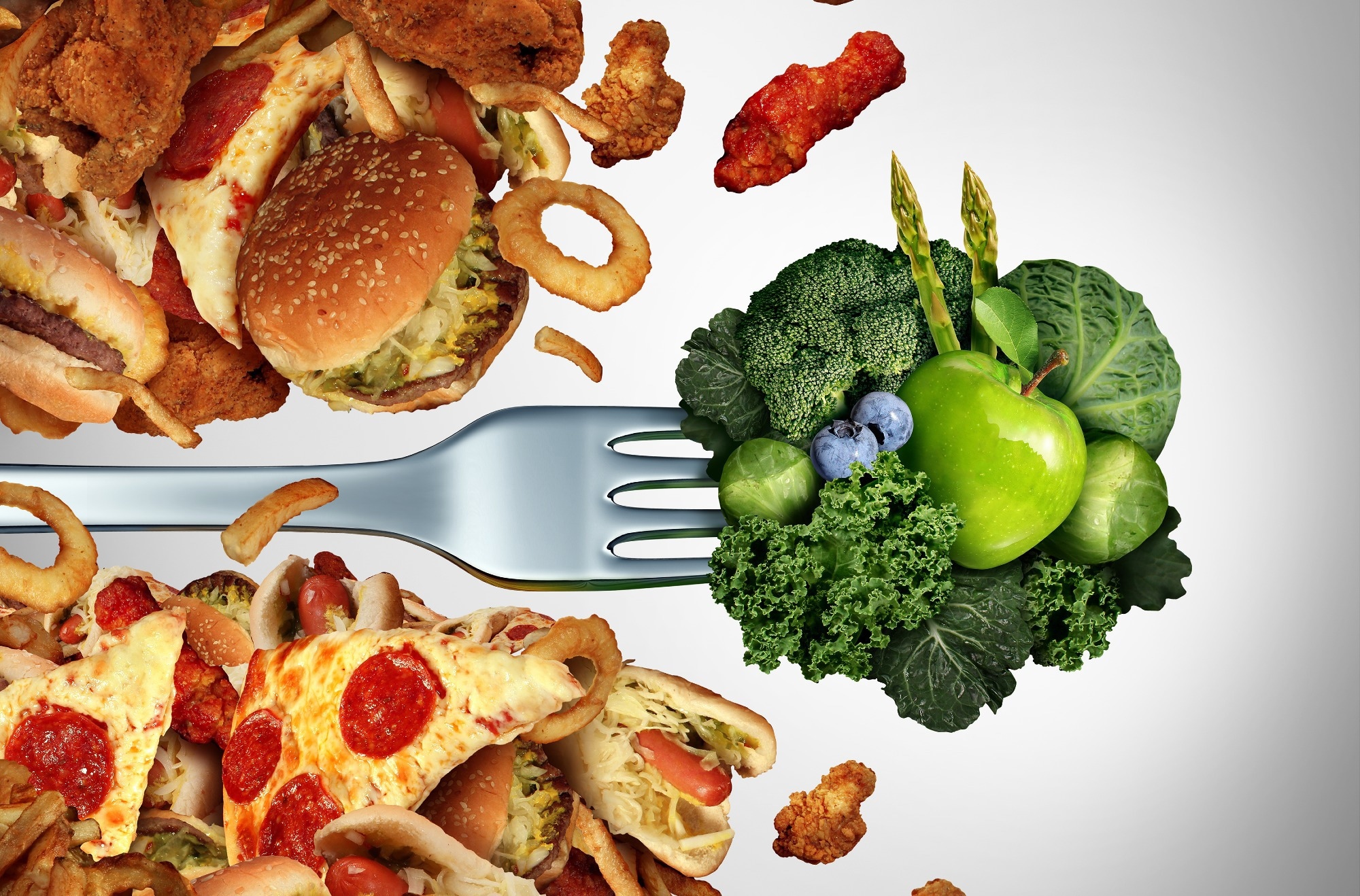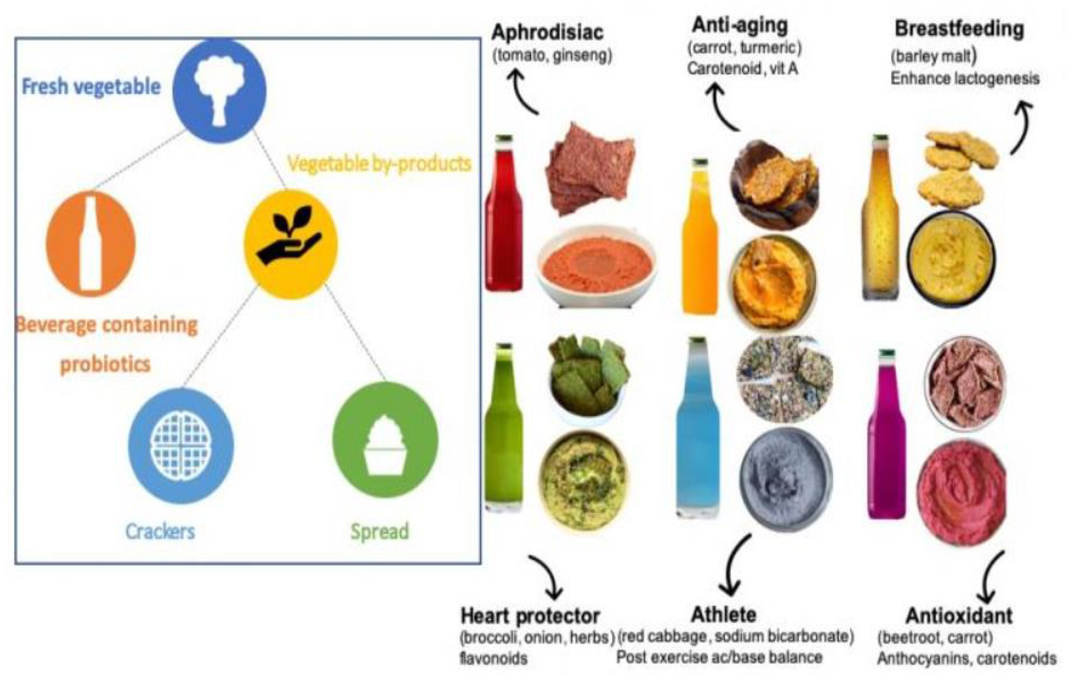Multiple health problems have been associated with the consumption of unhealthy snacks. This knowledge has led to limited consumption of unhealthy snacks/beverages and replacing them with healthier options, such as fruits and vegetables. A recent PLOS ONE study conducted an online survey to determine the perception and preference of healthy snacks/beverages amongst US consumers.
 Study: Perception and demand for healthy snacks/beverages among US consumers vary by product, health benefit, and color. Image Credit: Lightspring / Shutterstock
Study: Perception and demand for healthy snacks/beverages among US consumers vary by product, health benefit, and color. Image Credit: Lightspring / Shutterstock
Background
Globally, snacking is a common practice among all age groups. Snacks are described as foods/beverages that are consumed beyond regular mealtimes. More than 90% of adults residing in the US have reported consuming snacks at least once a day. A recent study has indicated that the rate of snacking has increased substantially, but a significant decrease in the consumption of fruits and vegetables was observed. In contrast, a higher intake of unhealthy snacks, which include salty snacks, sweet beverages, and candy, has been observed.
Higher consumption of unhealthy snacks/beverages leads to weight gain and obesity. These conditions are associated with multiple health conditions, such as type 2 diabetes, cardiovascular diseases, hypertension, and dyslipidemia. Unhealthy snacking also affects the ability to maintain a balanced diet. Therefore, following healthy snacking that is rich in nutrients and a calorie-balanced diet is imperative.
There has been a rise in awareness regarding the importance of diet for well-being and life expectancy, which has positively impacted healthy food/snack choices. Prior research has revealed that the prevalence of unhealthy snacks in diets varies significantly across age groups.
About the Study
The current study aimed to determine consumers' preferences for healthy snacking options and factors linked to these choices. In addition, the key determining factors influencing consumers' willingness to pay (WTP) for healthy snacks/beverages, such as Extraversion, Innovativeness, and socioeconomic/demographic factors, were evaluated.
Here, three categories of products, namely, spreads, crackers, and beverages, were selected due to their high popularity as snacks. In 2020, an online survey was conducted using a nationally representative sample of US consumers. This survey was pretested several times to improve the questions. All participants were above 18 years of age and were primary grocery shoppers in the household. To avoid respondent fatigue, the survey duration was limited to 20 minutes.
The eligible candidates provided information about their snack and beverage consumption habits, preferences for different healthy snack and beverage products, sociodemographic characteristics, and attitudes towards a health/environment.

Study: Perception and demand for healthy snacks/beverages among US consumers vary by product, health benefit, and color. Image Credit: Illustration of snack product alternatives and production process. / Shutterstock
Study Findings
Consumers' preference for healthy spreads, crackers, and drinks was evaluated. Each of the snacks was differentiated by colors and health benefits. A total of six different health benefits were presented in each food alternative, amongst which participants were more inclined towards two benefits, namely, antioxidants and heart protectors. Notably, they were willing to pay higher for the products carrying these two benefits. It could be because responders were more familiar with these health benefits and perceived them to be more important than others.
A correlation between various sociodemographic/personality/behavioral factors and consumer WTP for healthy snack products was established. Innovativeness was found to be a strong factor that influenced the relationship with WTP for several products across the three categories. Innovative consumers are an important group because of their willingness to try out new products, and this group is the first to spread information about new products to others.
Extraversion was found to be robustly connected with WTP for some spreads and beverages. Extraverted individuals were seen to prefer yellow (breastfeeding), red (aphrodisiac), and green (heart-protector) beverages. This finding indicates that personality traits can also influence consumers' differentiation of health benefits.
The health benefit was found to be a strong predictor of WTP for the majority of beverage products. Flavor strongly influences WTP for the red (aphrodisiac) crackers and spreads only. Interestingly, consumers for whom organic products are important tend to have a higher WTP for the green (heart protector) crackers. These findings indicate a positive correlation between participants' perception of the healthiness of their diets and their WTP. A negative correlation between age and WTP for all products was observed.
Innovativeness was found to be an important characteristic feature in all three product categories. However, it mainly affected WTP for all the cracker products. Household income was found not to be associated with WTP for the beverages but linked to crackers and spreads.
Conclusions
The authors claim this study to be the first to estimate consumer WTP for healthy snack options based on appearance and health benefits. The current study contributes to the growing evidence to improve the nutrition quality of consumers based on their preferences for healthy snacking options. It was observed that US consumers have a strong preference for plant-based healthy snacking. However, this preference varies in accordance with specific health benefits provided by the product. The study findings will positively benefit policymakers in making appropriate dietary recommendations for healthy snacking.